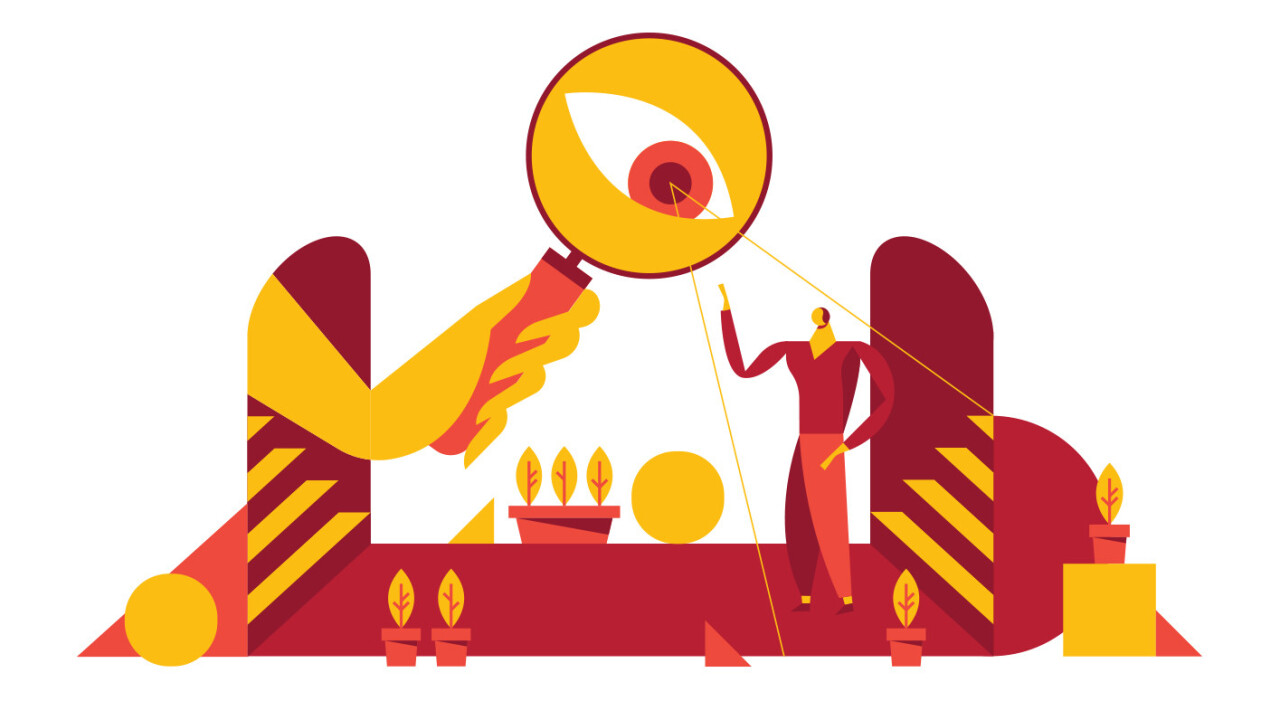
Imagine a world in which your employer knew everything about you. Whether you like your job, whether you are planning to quit, everything you do on your computer, and even what you do and where you go when you are not at work.
That world is here.
We live in a world where we increasingly outsource our decision making to big data and AI driven algorithms. Today, these algorithms are inserting themselves into decisions as life-altering as who should be imprisoned and who should go free, as banal as what songs we listen to, and as critical as who gets to be heard on the information highway.
So it shouldn’t come as a surprise that big data and algorithmic decision making have become an indispensable part of the human resources toolkit at companies.
You become a number the moment your resume leaves your outbox. Before a human ever sees your resume many companies use AI to post jobs, recruit candidates, schedule interviews and then to gather reams of data on you from your online life, assess your human qualities, and draw on research to analyze everything from word choice and microgestures to psycho-emotional traits and the tone of social media posts.
Big Brotherish
All of this information isn’t just used to decide if you are the right candidate, but, at least in places where there is no GDPR, is also collected, stored, and used to inform future hiring decisions. As a result, you have a 72% chance of being disqualified from consideration before the first human ever lays eyes upon your resume.
If you make the cut and are hired, your time as a number has only just begun. For many employers, the burgeoning field of people analytics is offering unprecedented insight into their employees. </p>
These insights extend from the seemingly harmless — work habits and routines — to the somewhat scary — tracking your likelihood of quitting in the immediate future and your risk of “bad behavior” — to the downright Big Brotherish — tracking the sentiment of your emails, analyzing your voice communications, and even using physical tools such as badges to track who you interact with during the workday, and where you go outside of the workday.
These tools are rapidly getting more powerful. Companies like Workday and Volometrix are combining artificial intelligence with newfound levels of data available to employers and others like ActivTrak and Sociometric are u>sing new technologies to capture ever more data about employees.
Helpful analytics
To some, like Leighanne Levensaler, Senior Vice President of Corporate Strategy at Workday, the benefits are undeniable for both employers and employees.
Levensaler believes that people analytics is increasingly becoming a driving force for employers to compete for talent. “Today’s HR organizations have a wealth of data, and our leading customers see analytics as a way to understand where they need to devote more time and resources developing people initiatives, and then measure their success and impact over time,” says Levensaler.
However, Levensaler also believes that people analytics can improve the experience for employees. “We’re seeing customers use analytics at all stages of the employee lifecycle, including during performance check-ins, where actual worker productivity data imported from operational systems can help enrich conversations and compensation decisions with quantitative facts.”
One example Levensaler provides is Workday’s Opportunity Graph. This feature enables employees to explore where others in their role have moved to in the organization, learn about those jobs, and even network with other employees to help drive their own career mobility.
In addition, she pointed to Workday Learning, an application that uses machine learning to personalize workplace learning for individuals; it recommends professional development content and courses based on an employee’s position, tenure at the company, interactions with the content, and other factors.
And in many ways, Levensaler is right. People analytics can help both employers and employees. For employers in limits the typical liability that they face for employee bad behavior by catching and preventing fraud in the workplace and help optimize for efficiency — showing them how they can organize for efficiency and where to trim the fat.
It can also present real benefits to employees by giving HR the tools to map successful career and learning paths for employees based on the data of past success.
Invasion of privacy
However, as you would expect, there is certainly a dark side to this kind of technology.
“Most people are a little blind to how much they are monitored,” says Corey Ciocchett, Professor of Law and Ethics at Denver University. According to him, it isn’t necessarily bad that employers are collecting and using employee data, however, he believes it is bad how most employers engage in collecting this data — without employee consent or knowledge.
“If people analytics policies were public, they could leave the company or at least change their behavior to protect themselves from the worst invasions of privacy. If it’s bad enough, public pressure could also change policy,” says Ciocchett.
Beyond a lack of transparency, algorithms mimic human decision making and are typically trained to learn from past successes, which means they may embed existing bias. This means using people analytics might make hiring and advancement easier for those who have always succeeded and harder for those who have been historically underrepresented and oppressed in the workplace.
Unfortunately, for employees who hope to challenge the invasion of their privacy by their employer, the deck is not stacked in their favor. According to Ciocchett, even in cases where employees are aware that their privacy is invaded, there isn’t much they can do.
“The legal standard is just not employee favorable. The reasonable man standard for what constitutes an invasion of privacy by employers is a pretty low bar.”
Further, according to Ciocchett and past precedent, it seems highly unlikely that Congress will do anything to strengthen employee protection in the United States. “People just don’t care enough and Google and Facebook have powerful lobbyists. In the absence of new legislation, the laws that protect us were made for landlines and payphones. They are woefully inadequate.”
Tools to protect yourself
So what can employees do in the meantime?
Unfortunately, employees’ options are limited, but there are a few tools in the toolbox:
- Separate work and personal: Use your employers’ network and devices strictly for work-related activities. For scrolling news websites or checking your Facebook, employees should use their personal devices and data, not their employers’ network. Read here for more ideas on how to use and protect your personal devices at work.
- Be an advocate for transparency: Advocate for greater transparency within your employer’s people analytics programs. Read your employers policies around employee monitoring and data collection. If you can’t find them, ask. Transparency is the key to ethical people analytics programs.
- If your employer does use people analytics, make sure this is used to your advantage. Ask your HR team member what successful career pathways and learning pathways have been carved out by past employees – their data should hold the answers.
In truth, the best hope for employees is that over time as the world is forced to confront Cambridge Analytica type disruptions employer norms and the laws protecting employee data will shift> data ownership and privacy protection back in their favor.
Do you want to take the lead in the digital era? Let’s bring business, technology, and experience together to shape your personal value proposition within the digital world and become PwC’s Next Digital Leader.
Get the TNW newsletter
Get the most important tech news in your inbox each week.





